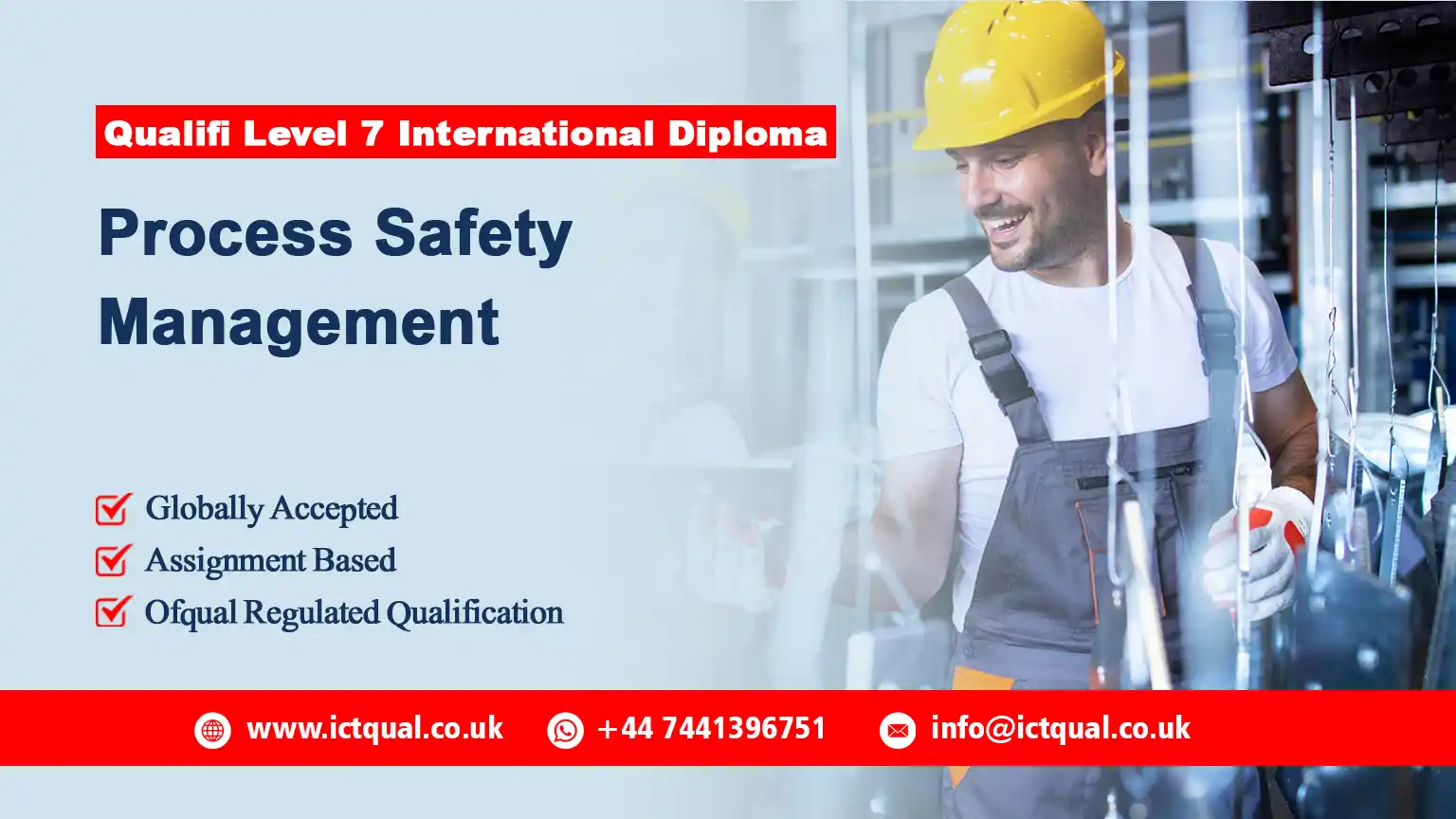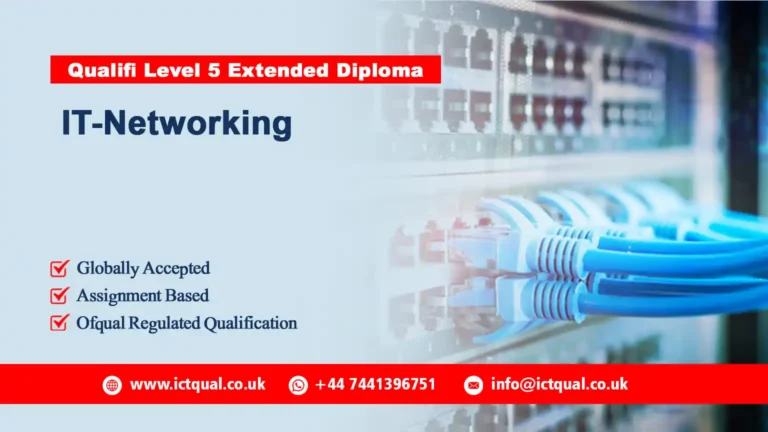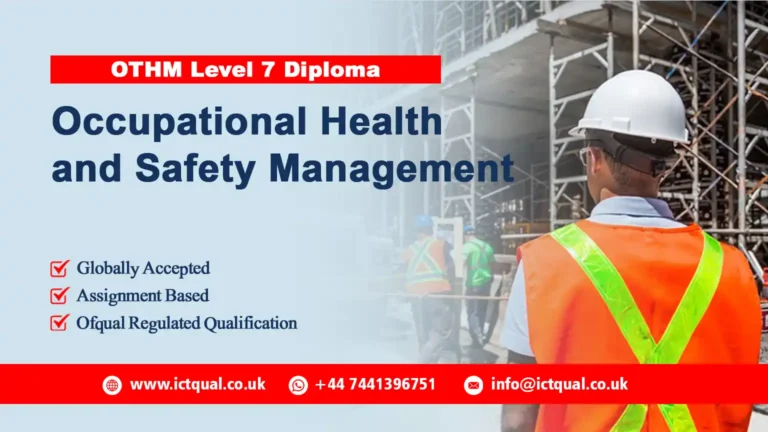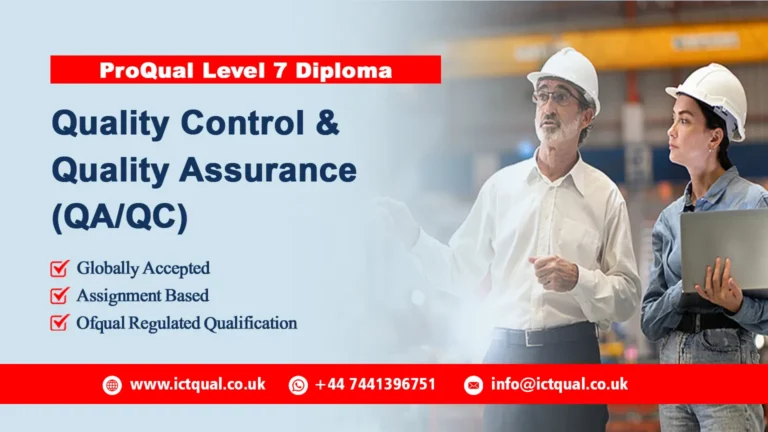In the high-stakes realm of industrial operations, ensuring robust process safety management is critical to preventing accidents, protecting assets, and safeguarding lives. The Qualifi Level 7 International Diploma in Process Safety Management stands out as an advanced qualification designed to equip professionals with the expertise needed to excel in managing complex safety systems across diverse global environments. This diploma is tailored for individuals aiming to enhance their skills and leadership in the field of process safety management, ensuring the highest standards of safety and compliance.
The Qualifi Level 7 International Diploma in Process Safety Management is a comprehensive and advanced qualification focused on the principles and practices of managing safety in industrial processes. It addresses the need for sophisticated safety systems and risk management strategies to handle the complexities of modern industrial operations. The diploma is designed for professionals seeking to deepen their knowledge and take on leadership roles in process safety, whether in manufacturing, chemical processing, or other high-risk industries.
Holding a Level 7 qualification can significantly enhance your career prospects. It demonstrates a high level of competence and commitment to safety management, which can open doors to senior roles and specialized positions.
Enrollment in the Qualifi Level 7 International Diploma in Process Safety Management typically requires relevant work experience and a strong educational background. Prospective students should check the specific entry requirements set by the awarding body and ensure they meet the criteria.
The Qualifi Level 7 International Diploma in Process Safety Management is a valuable asset for professionals dedicated to improving safety in high-risk industries. By pursuing this qualification, you can gain a thorough understanding of process safety management principles, enhance your career prospects, and contribute to creating safer working environments.
If you’re ready to take your expertise in process safety to the next level, this diploma offers a robust and internationally recognized pathway to achieving that goal. Explore the opportunities that come with this advanced qualification and make a significant impact in your field.
The Qualifi Level 7 International Diploma in Process Safety Management is a premier qualification aimed at professionals seeking to excel in managing process safety across diverse global industries. This advanced diploma is designed to provide an in-depth understanding of process safety principles and practices, equipping learners with the skills required to handle complex safety systems and ensure regulatory compliance in international settings.
The course offers a detailed exploration of process safety management, focusing on advanced principles and methodologies essential for managing safety in industrial environments. Participants gain expertise in developing, implementing, and sustaining effective safety management systems that address the complexities of modern processes. The curriculum covers critical areas such as hazard identification, risk assessment, and safety culture, preparing professionals to handle the multifaceted nature of process safety with confidence.
A core component of the diploma is its emphasis on sophisticated risk assessment and control techniques. The program equips learners with advanced skills to identify, evaluate, and mitigate risks associated with industrial processes. Participants learn to apply methodologies for conducting thorough risk assessments, designing and implementing control measures, and developing robust emergency response plans. This knowledge is crucial for managing safety challenges and ensuring the effective control of potential hazards.
The diploma includes a thorough examination of international safety standards and regulatory frameworks. Participants explore global regulations and compliance requirements relevant to process safety management, including guidelines from organizations such as the International Safety Management (ISM) Code and the Occupational Safety and Health Administration (OSHA). This segment of the course ensures that learners understand and can navigate the complex legal landscapes governing process safety across different countries.
Effective leadership is vital for driving process safety initiatives and fostering a safety-oriented culture. The course offers comprehensive training in leadership and strategic management, focusing on skills required to lead safety teams, manage cross-functional challenges, and influence organizational safety culture. Participants develop the capabilities to inspire and guide teams, implement strategic safety initiatives, and drive continuous improvement in process safety practices.
The diploma emphasizes the importance of emergency preparedness and response planning. Participants learn to create and implement emergency response plans that are adaptable to various scenarios and regulatory environments. The course covers best practices for conducting safety drills, coordinating with emergency services, and managing responses to safety incidents, ensuring that organizations are prepared to handle emergencies effectively.
Promoting and sustaining a strong safety culture is a key focus of the program. Participants explore strategies for engaging employees, fostering a proactive safety mindset, and embedding safety principles into everyday operations. This aspect of the course helps in creating an environment where safety is a shared responsibility and an integral part of the organizational ethos.
The diploma includes training in data analysis and performance measurement related to process safety. Participants learn to collect and analyze safety data, identify trends, and generate insightful reports that support informed decision-making and drive continuous improvement. This data-driven approach ensures that safety management practices are effectively monitored, evaluated, and refined over time.
The Qualifi Level 7 International Diploma in Process Safety Management provides a robust and comprehensive education for professionals aiming to advance their expertise in process safety. With its focus on global standards, risk management, leadership, emergency preparedness, and safety culture, the diploma equips learners with the knowledge and skills needed to manage safety in complex industrial settings effectively. This qualification is ideal for those seeking to enhance their career prospects and make a significant impact in the field of process safety management.
The Qualifi Level 7 International Diploma in Process Safety Management qualification consists of 4 mandatory units of 60 credits for the completed qualification.
Mandatory Units
| Sr# | Unit Title |
|---|---|
| 1 | Process Safety Management Systems |
| 2 | Risk Based Process Safety |
| 3 | Process Safety Culture and Human Factors |
| 4 | Development as a Strategic Manager |
This course is designed for:
1. Safety Managers
Safety Managers are responsible for developing and implementing safety protocols within their organizations. The diploma provides advanced knowledge in process safety management, enabling Safety Managers to enhance their strategies, improve risk assessment procedures, and foster a stronger safety culture.
2. Process Safety Engineers
Process Safety Engineers focus on designing and maintaining systems that prevent accidents and ensure safe operations. This diploma offers in-depth insights into process safety frameworks, risk management, and incident investigation techniques, equipping engineers with the skills to tackle complex safety challenges.
3. Compliance Officers
Compliance Officers ensure that organizations adhere to safety regulations and standards. The qualification’s focus on regulatory compliance and industry best practices allows Compliance Officers to stay current with international standards, ensuring their organizations meet or exceed safety requirements.
4. Risk Assessment Specialists
Risk Assessment Specialists are experts in identifying and evaluating potential risks within industrial processes. The diploma’s advanced training in risk assessment techniques helps specialists refine their methodologies and enhance their ability to predict and mitigate risks effectively.
5. Senior Safety Consultants
Senior Safety Consultants provide expert advice on safety practices and policies. By earning the diploma, consultants can deepen their expertise in process safety management, offer more informed recommendations, and strengthen their credibility in the field.
6. Health and Safety Professionals
Health and Safety Professionals who work in industries with complex and high-risk processes will find this diploma beneficial. It broadens their understanding of process safety, enabling them to integrate these principles into broader health and safety strategies.
7. Operational Managers
Operational Managers who oversee production and process activities can benefit from the diploma’s focus on safety management. It equips them with the knowledge to implement effective safety measures, improve operational safety, and lead safety initiatives within their teams.
8. Industry Leaders and Executives
Industry leaders and executives responsible for strategic decisions related to safety will gain valuable insights from the diploma. It helps them understand the critical aspects of process safety management, ensuring they can make informed decisions that support a culture of safety and regulatory compliance.
Learning outcomes for Qualifi Level 7 International Diploma in Process Safety Management
Process Safety Management Systems
- Implement Process Safety Management System (PSM) framework.
- Measure the performance of the PSM system by applying leading, lagging metrics and Perform Compliance Audit of Process Safety Systems.
- Implement Management of Change (MOC) in Process Safety Management System (PSM).
- Review the regulatory and legal compliance of process safety systems and implement metrics that measure sustainability in the process safety area.
Risk Based Process Safety
- Apply HAZOP methods to process safety incidents.
- Quantify risk analysis measures in process safety industries.
- Evaluate the operational considerations of process safety systems by analysing Mechanical and Asset Integrity, Layer of Protection Analysis (LOPA) and Piping and Instrumentation diagram.
- Evaluate the operational readiness of process safety systems by analysing Safety Integrity Levels, Emergency Relief Systems, Pre-Startup review and Hot work permits
Process Safety Culture and Human Factors
- Evaluate process safety culture and human factor optimization techniques.
- Implement strategies that assess the mental health of workers, including postCovid and the impact of digitalization in process industries.
- Develop a stakeholder outreach contractor management programme.
- Implement a competence development framework.
Development as a Strategic Manager
- Identify personal skills to achieve strategic ambitions.
- Manage personal leadership development to support achievement of strategic ambitions.
- Evaluate the effectiveness of the leadership development plan.
- Advocate an employee welfare environment that supports organisational values.







